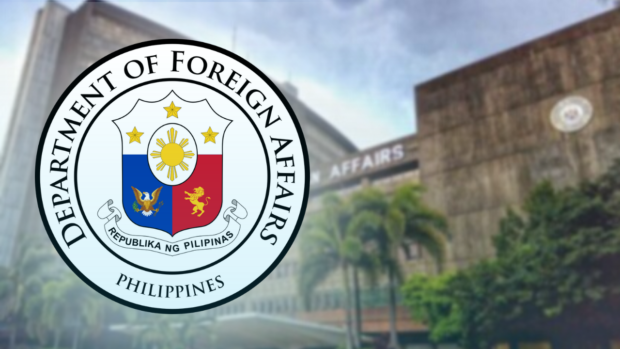
Department of Foreign Affairs (INQUIRER FILE PHOTO)
Updated @ 11:16 p.m., May 31, 2023
MANILA, Philippines — The Commission on Appointments (CA) on Wednesday confirmed the nominations and ad interim appointments of seven foreign service officials in the Department of Foreign Affairs (DFA).
The congressional body confirmed the officials after the recommendation of the CA committee on foreign affairs, which discussed the nominations and appointments of each official.
The said officials are the following:
- Henry Sicad Bensurto Jr. – Chief of Mission, Class I, as Ambassador Extraordinary and Plenipotentiary to the Republic of Türkiye, with concurrent jurisdiction over Georgia and the Republic of Azerbaijan
- Raul Salavaria Hernandez – Ambassador Extraordinary and Plenipotentiary to the Sultanate of Oman, with the salary and emoluments of Chief of Mission, Class I
- Carlos Deymek Sorreta – Chief of Mission, Class I, as Permanent Representative of the Republic of the Philippines to the United Nations in Geneva, Switzerland
- Renato Pedro Oabel Villa – Chief of Mission, Class I, as Ambassador Extraordinary and Plenipotentiary to the Kingdom of Saudi Arabia, with concurrent jurisdiction over the Republic of Yemen
- Paul Raymund Pasion Cortes – Chief of Mission, Class II, as Ambassador Extraordinary and Plenipotentiary to the Portuguese Republic, with concurrent jurisdiction over the Republic of Cabo Verde, the Republic of Guinea-Bissau, the Democratic Republic of Sao Tome and Principe, and the Republic of Angola
- Josel Francisco Ignacio – Chief of Mission, Class I, as Ambassador Extraordinary and Plenipotentiary to the Republic of India, with concurrent jurisdiction over the Federal Democratic Republic of Nepal
- Maria Angela Abrera Ponce – Chief of Mission, Class I, as Ambassador Extraordinary and Plenipotentiary to Malaysia
Before approval, lawmakers quizzed some of the officials on various topics during the committee’s panel hearing.
Bensurto, who was tagged by Sagip partylist Rep. Rodante Marcoleta, as one of the country’s leading experts on the UNCLOS as he was part of the team that gave the Philippines its victory by the Permanent Court of Arbitration, was quizzed on the relevance of the Hague ruling.
“In the past, whereas more than 500,000 square kilometers of EEZ (Exclusive Economic Zone) and another more than 500,000 square kilometers of continental shelf, that’s about a million square kilometers of continental shelf and EEZ most of these now are no longer disputed because of the ruling,” Bensurto said.
“Most of these now are no longer disputed because of the ruling, what used to be a large area of disputed [territory] is now just limited to something like 13,000 square kilometers out of a million square kilometers,” he added.
This means that the ruling clarified the EEZ of the countries involved — Philippines, Malaysia, Brunei, Indonesia, and Vietnam.
“That being affirmed, the freedom of navigation is also affirmed,” he added.
When asked by Sen. Risa Hontiveros on how the country can push further international recognition of the ruling and make it a “global norm,” Bensurto said that the Philippines should tell the world that the implications of the South China Sea dispute are more than a bilateral issue.
He noted that the implication of the South China Sea dispute is “far-reaching,” noting how a third of global trade passes through the said waters, with some authors even placing it at 60 percent of total global trade.
He also stressed the importance of the rule of law as it is the “tie that binds all of us in a community of nations.”
“I think that message should be put forth to the international community so that the international community can understand the issue as more than a bilateral, but something that also has implications in peace and security on a global scale,” he explained.
RELATED STORY